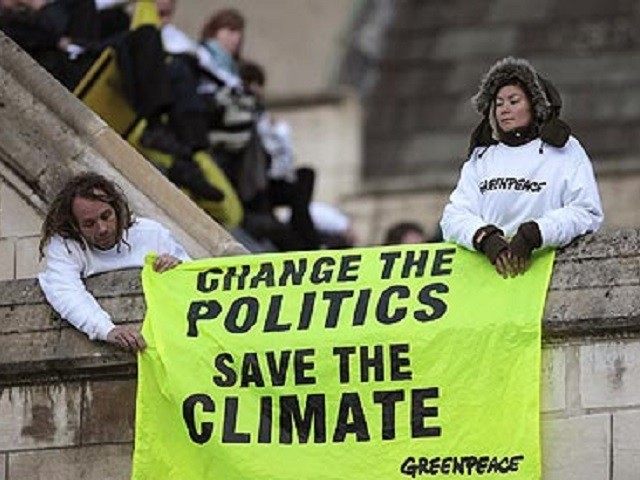Climate change activists pose a “credible threat to the health and safety” of people and the environment, according to a memo prepared by the Royal Canadian Mounted Police for the Canadian government. The memo has provoked righteous indignation from climate change activists, who are concerned that they may face surveillance under proposed new anti-terrorism laws.
The 44 page intelligence assessment of Canada’s environmentalist movement, dated 24th January 2014, has been obtained by Greenpeace and passed to the Guardian. It focuses specifically on “anti-petrolium extremists”, of whom it says “Violent anti-petroleum extremists will continue to engage in criminal activity to promote their anti-petroleum ideology”.
It continues: “There is a growing, highly organized and well-financed anti-Canada petroleum movement that consists of peaceful activists, militants and violent extremists who are opposed to society’s reliance on fossil fuels.
“Those aligned with the most extreme factions use the internet to promote and instruct on the use of violent criminal techniques, including arson, vandalism and sabotage. Demonstrated criminal activity associated to this extremist faction includes: threats to life and property, improvised explosive devices, arson, vandalism, sabotage, thefts, and break and enters, most notably in New Brunswick, Quebec, Ontario, Alberta and British Columbia.
“Regardless of the source or nature, criminal actions targeting the Canadian petroleum industry, intended to cause harm or not, represent a credible threat to the health and safety of the workers, the general public, the activists, the natural environment, and the facilities’ operations.
“If violent environmental extremists engage in unlawful activity, it jeopardizes the health and safety of its participants, the general public and the natural environment.”
According to the Guardian, the memo also describes those concerned with climate change as being on the “political fringe”.
In a departure from the tone adopted by official bodies in other western countries when discussing climate change, the memo consistently uses neutral, even sceptical language. For example, it notes that “in their literature, representatives of the movement claim that climate change is now the most serious global environmental threat and that climate change is a direct consequence of elevated anthropogenic greenhouse gas emissions which, reportedly, are directly linked to the continued use of fossil fuels.”
That scepticism has raised the hackles of climate change activists (and Guardian journalists, who seem genuinely perplexed that the IPCC is not mentioned within the document), who are convinced that they will be targeted under a proposed new law, Bill C-51, which allows greater powers of surveillance to be used on terror suspects.
Prime Minister Stephen Harper has spoken in favour of the bill in terms of its ability to counter Islamic extremism, but the wording is more broad based, identifying “activity that undermines the security of Canada” as anything that compromises critical infrastructure, or the economic or financial stability of Canada, although it explicitly excludes lawful protest and dissent.
Keith Stewart, a climate campaigner for Greenpeace, which is explicitly mentioned in the document as a potential threat, told the Globe and Mail: “This document identifies anyone who is concerned about climate change as a potential, if not actual – the lines are very blurry – ‘anti-petroleum extremist’ looking to advance their ‘anti-petroleum ideology.
“The parts that are genuinely alarming about this document are how it lays the groundwork for all kinds of state-sanctioned surveillance and dirty tricks should C-51 be passed.”
But a spokesman for the Mounties, Sergeant Greg Cox, insisted that the force only investigates activities when there is suspicion of criminal conduct. “As part of its law enforcement mandate the RCMP does have the requirement to identify and investigate criminal threats, including those to critical infrastructure and at public events,” he said.
“There is no focus on environmental groups, but rather on the broader criminal threats to Canada’s critical infrastructure. The RCMP does not monitor any environmental protest group. Its mandate is to investigate individuals involved in criminality.”

COMMENTS
Please let us know if you're having issues with commenting.